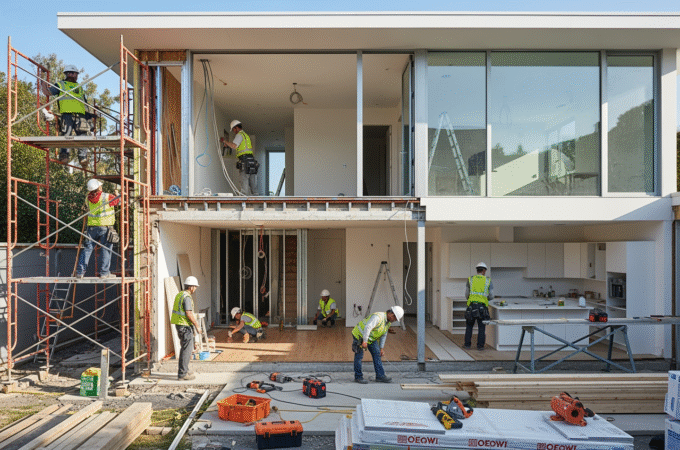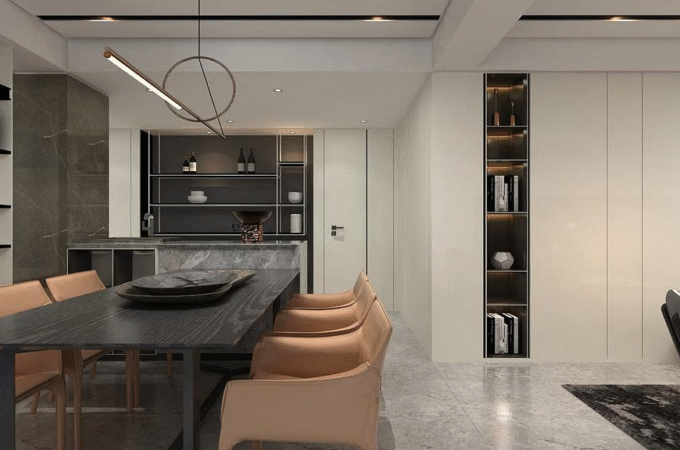
Top 10 tips to think about when your planning to renovate your home
Home renovations take a lot of time, money, and effort. You want to go into these projects knowing what you’re doing and what it’ll cost you. You don’t want to waste any of your resources here, especially if you’re on a budget! So, if you’re thinking about renovating your home in the near future, make sure you approach your plans with the following in mind:
Research Ideas for Creating Space
First, start by researching ideas for creating space, because you won’t have them all! You might not have considered that renovations and extensions can be done both inside and out. For example, a Porch Extension might not be something you thought about before – costing only £1000 per m2, you now know this is a highly cost effective way to create a bit more space on your property. Click here to find out more about porch extension costs here.
Coming Up with a Budget
Then you’ll need to come up with a budget for your project. You’ll need to know what kind of money you’re working with, whether or not you can go a little bit over, and what renovations fit into this bracket. There are many out there, and doing some research into them will only help to inform the right decision here.
Think About Your Schedule
When planning to either build a home extension or expand an existing room, you’re going to need a schedule to follow. You need to know when work both begins AND ends, to ensure it’s not interrupting your life, nor creating unnecessary nuisance for your neighbours. Be sure to get an estimate off of the contractors before they get started, and make sure you’re happy with it.
Dividing Space with New Walls
If you set up new walls in your home, you can both lighten the load of the entire structure, as well as create rooms within rooms – it’s cost effective, and much quicker than many other options on this list. If you’ve got a big bedroom upstairs that’s sitting unused, setting up a wall in the middle of the space will create two new rooms. This is perfect for kids, or if you have plans to rent out your spare rooms.
Setting Up New Lighting
New lighting takes a bit of planning, thanks to the electrical components involved, and the fact that you don’t want to overexpose any areas. Think about investing in standing lamps, rather than overhead fixtures, to keep renovations a lot more simple.
Restoring the Floor
The floor can get scratched up when you’re renovating your home, so be sure to keep an eye on it. Restoration work on wooden floors can cost upwards of £400, so be sure to cover it and keep it covered if your floors are old.
Creating More Storage
Renovations need to come with additional storage solutions, thanks to the new use of your space. You’re going to be moving more things in, and that means you need to think about where to put them, to keep your home as tidy as it was before.
Renovating the Bathroom
Renovating the bathroom can cost more than you’d think, and those statement fixtures you’d love to have? More space wasting than you’d realise! Bathrooms can be complicated to fix up, and you’ll need to plan ahead for the lighting, grouting work, storage space, and how comfortable the whole room actually is.
Remember What’s in the Walls
You’re also going to need to keep in mind that your walls hide both electrical wiring and plumbing. If you’re going to knock some of them down, or you’re planning to take out all the pipes and wiring and replace them, it’s important to know what circuits you’re working with and how your system is plumbed in. All in all, this might just be a job for an expert!
Keep an Eye Out for Warning Signs
And finally, make sure you know the warning signs. Be on the lookout for damp, and rot, which may be revealed inside of your walls or foundations when renovation work begins. Check that drains are working properly, and for blockages in gutters, as well as musty smells and weird substances in the wood, as these signs can all indicate if there’s a problem.
Renovating your home isn’t something you can do with no preparation. It’s important to know what you’re getting into, what’s best to add onto your home, and what might not be suitable and/or out of your budget. Make sure you keep these top tips in mind for any future projects you’re planning.
Mark Ligon is the Marketing Manager at a leading e-commerce store in plumbing supply. Mark focus is on DIY projects and providing creative and practical advice to individuals looking to complete DIY projects of their own






